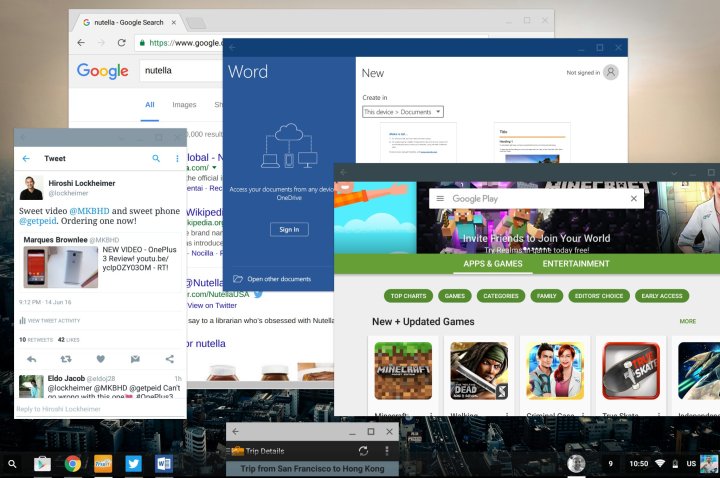
Google has been naming every Android OS update after a different dessert, following an alphabetical order. After alpha, and beta, the first Android version was called
Google usually announces the name by unveiling a new statue of the dessert with the “bugdroid” Android mascot, and the naming process is usually handled behind closed doors. This year, Google is trying something different. At its developer conference, Google announced that it was letting people throw in their ideas on what

The naming website has stopped taking submissions for the past few weeks.
“We’re poring over the submissions and will announce the name of Android N soon,” the website states. We may have just been treated to a potential name, though — a chocolate spread that seems to have overwhelming support.
Just testing some stuff out… pic.twitter.com/6KPTEgXl9K
— Hiroshi Lockheimer (@lockheimer) June 15, 2016
Hiroshi Lockheimer is the senior vice president of Android, Chrome OS, and Google Play at the Mountain View, California, company, and in his tweet where he says he is just “testing some stuff out,” you can see Microsoft Word, the Google Play Store, a tweet celebrating the OnePlus 3 launch, and — tucked away in the background — a Google search for “Nutella.”
The Play Store is set to come to Chrome OS some time this year, bringing along the plethora of Android apps to the Chromebook operating system. More importantly, will
For example, a Google executive wore an Android Wear watch with a milkshake as the watch face during Google I/O 2015 — that clearly wasn’t the final moniker.
This tease by Lockheimer is hardly subtle, which could very well mean that Nutella isn’t going to make the cut. The company isn’t shy of using branded names though, as seen with Android 4.4 KitKat. We’ve got a few months before Android N drops, likely along with two Nexus devices. So for right now, there’s nothing we can do but wait to see what Google chooses.

